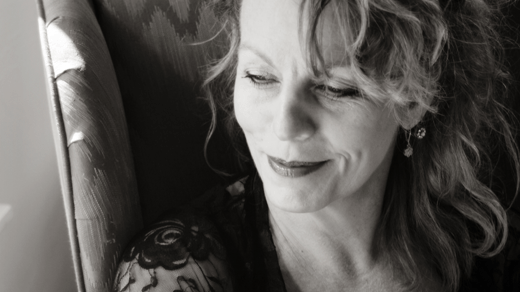At a museum just off Main Street you enter a door in the middle of what – if your imagination leaps – is the silver underbelly. Inside, a display of antique lures, tackle boxes, outboard motors, stuffed specimens of not only muskie but bass, perch, walleye. Lights glow in glass cases, and the imitation marble floor exhales a scent, cool and dank, I associate with church basements, VFW halls, school auditoriums, and, by extension, a list of sacred abstractions. This is a museum, after all. Patriotism, health, education, piety – a currency I didn’t value because I didn’t see I’d ever spend it, which was the point. “They can never take that away from you,” my mother said about patriotism, health, education, piety, but also about sewing skills.
Photos of the world-class muskie this museum honors, and the man who caught it, hang on the walls in every bar in town, which is plenty – ten on two blocks on Main Street, another dozen not on Main but still within city limits. In 1960, John F. Kennedy used the men’s room in a bar when he came through on his whistle-stop tour: JFK USED THESE FACILITIES a plaque says on the door, also above the urinal.
Another museum on the edge of town, the Gallery of Woodcarving, shows the life-sized story of Christ and other biblical figures. An old man carved them. I liked the subterranean Daniel in the Lion’s Den: a ferocious king of the beasts, and Daniel, puzzled as to why God would put him through this, but gentle and wise as he approached the lion to take the thorn from his paw. People tossed money in. My brother, Davie, and I leaned over the pit. I loved the vertigo, the steep cement walls, like I could fall. “Louisa,” Davie sighed, “if we could just get down there.” He flailed through the railing toward silver and copper coins, green bills which seemed to have wafted down. My mother’s black patent leather purse, as hard as a suitcase, bumped my head. “Children,” she said, “it’s not about money.” To prove this, she gave us our allowance right there and helped us toss it. “Other people have less,” she said, tossing more.
At the city bank there was a stuffed albino deer, its backdrop a replica of the Wisconsin forest hand-painted by a local woman renowned for spiny, smoke-colored trees, starlike flowers, and yellow eyes. An albino has pink eyes. Someone had hit this one with a car and the state patrol officer thought it too beautiful to waste. As my mother made a deposit, Davie and I stared at the deer, its glass eyes. “Look at his toenails, Louisa,” Davie said, meaning its hooves. I tried to understand. “It gives you a chill,” I told the loan officer. He looked at me over his glasses, which had slid down his nose. “It does at that,” he said. He sorted documents on his desk into significant piles.
Photo by Suzanne ReissDebra Monroe is a graduate of UWEC and the author of four books of fiction and one of non-fiction. A Wild, Cold State is a collection of short stories set in Wisconsin. To learn more about her go to Debra Monroe, visit http://debramonroe.net/























